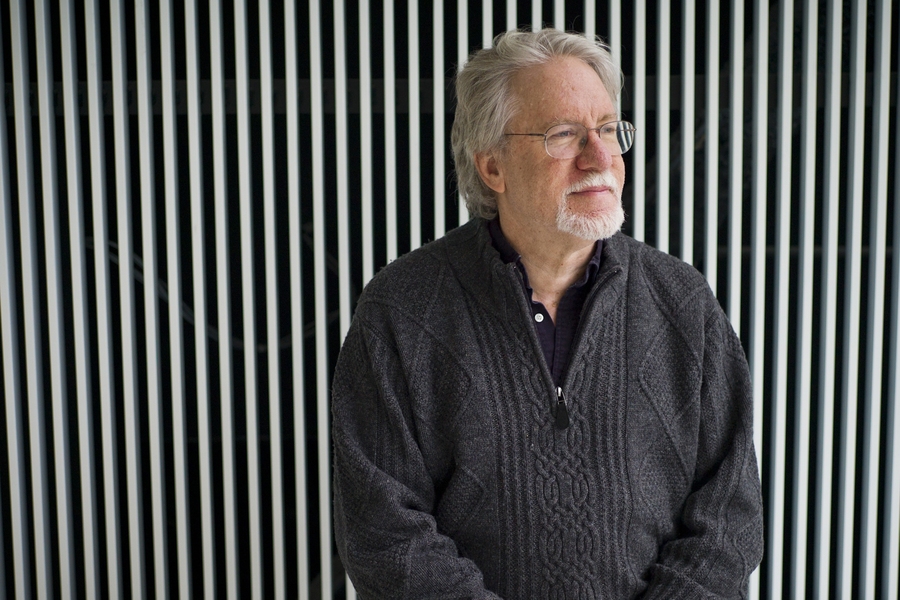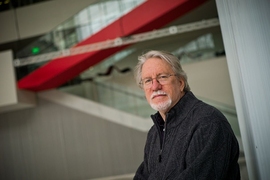Edward Schiappa, the John E. Burchard Professor of Humanities and head of MIT Comparative Media Studies/Writing, has received one of his field's highest honors — the Charles H. Woolbert Research Award, given by the National Communication Association “to a journal article or book chapter that has stood the test of time and has become a stimulus for new conceptualizations of communication phenomena.”
Schiappa and his co-authors, Peter B. Gregg and Dean E. Hewes, won the award for their 2005 essay, “The Parasocial Contact Hypothesis,” which puts forth a hypothesis of media influence that has been used by scholars all over the world since its publication in 2005. The parasocial contact hypothesis proposes that the benefits of interpersonal contact for changing attitudes toward minority groups can happen through media, and not only face-to-face interaction.
Three experiments showed that media could decrease prejudice
In three experiments, Schiappa and his co-authors showed that prejudice against gay men declined as members of a majority group viewed television series that featured gay men — namely "Queer Eye for the Straight Guy" and "Six Feet Under" — or viewed a television special of stand-up comedian and transvestite Eddie Izzard.
In the first two experiments, subjects viewed episodes of "Queer Eye for the Straight Guy" and "Six Feet Under." They then took post-viewing questionnaires to measure any change in attitude over the course of viewing the series, and the researchers matched those answers against certain predictions, such as that viewing gay characters reduces antigay prejudice but that, among viewers with lower prior bias, the effect would be much smaller. In the third experiment, they tested whether the theory was generalizable: Could what worked to make people more accepting of gay men also work for other marginalized groups? The answer was yes.
The authors' conclusion proved to be far-reaching. Scholars had long accepted that media could persuade people to change their beliefs about the world and reinforce prejudices toward minority groups; this was the first time, however, that researchers shows that media also could educate people about minority groups and decrease prejudice toward minorities.
Impact on the social sciences
In their praise of the authors’ work, the Woolbert Award’s judges highlight the transformative effect the paper has had on the social sciences. For 40 years after the conception of the original contact hypothesis, researchers had assumed social attitude persuasion happened primarily at the personal level. “What in the late 1990s was a literature primarily concerned with face-to-face interaction,” write the judges, “has become significantly richer as a result of considering media, new media, ‘imagined’ contact, and other unconventional forms of contact.”
The paper has gone on to influence fields as varied as sociology, medicine, linguistics, and even tourism studies. Other scholars have noted the importance of Schiappa and his co-authors' integrative scholarship. Family communication scholar Alan Sillars notes that the authors necessarily had to bridge divides themselves, namely the disciplinary ones between rhetorical studies, media studies, and interpersonal communication: “The research transcends narrow subdisciplinary specializations and speaks to broad academic and public audiences. We need more of this type of creative cross-fertilization to show how different contexts and approaches to the study of communication relate.”
Another scholar wrote that the essay “deserves recognition for being one of the very few papers published in a communication journal that social psychologists can bring themselves to cite.”
The "Will and Grace" Effect
To Sillars’ point, the research has indeed reached public audiences. Newsweek discussed it in an article about “The ‘Will and Grace’ Effect,” another example of a television show that decreased prejudice through parasocial contact, and Schiappa was featured in pieces from The New York Times and National Public Radio on the lack of controversy when gay characters on “Modern Family” adopted a child, compared to the fiery reaction to a 1997 episode of “Ellen” in which the main character comes out as gay.
Yet the hypothesis has had it largest impact in more recent years, in keeping with the Woolbert Award’s emphasis, even finding a place in the lobbying efforts of the Gay and Lesbian Alliance Against Defamation and the Center for Global Engagement’s Entertainment Initiative.
Schiappa is also the recipient of a number of other research awards, including NCA’s highest research award, the Distinguished Scholar Award.








